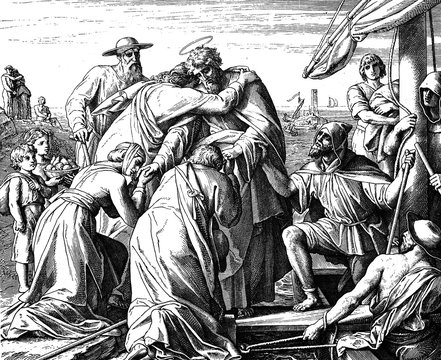In this blog, we'll focus on the working being done at Sligo Presbyterian Church, Sligo, Pennsylvania. We'll also look at what's happening in Sligo, Rimersburg, Clarion, and all the other communities served by our congregation.
Thursday, February 29, 2024
Today in the Mission Yearbook - The Rev. Dr. Liz Theoharis entreats Presbyterians to organize to end poverty
Bible Stories for Kids - Jesus Entering Jerusalem
On Thursdays, Pastor Rudiger reads a story to the children who attend the Dancer’s Studio Performing Arts Christian Preschool in Clarion, Pennsylvania. On February 29, he shared with the children the story of Jesus entering Jerusalem. Below is a recording of their time together.
Wednesday, February 28, 2024
Today in the Mission Yearbook - The PC(USA)’s first-ever Matthew 25 Summit opens with powerful and prophetic preaching
Of Kings & Covenants: A Study of 1 & 2 Samuel (On the Run - 1 Samuel 21:1–23:29)
The Sligo Presbyterian Church Wednesday Morning Bible Study is continuing its study of the Old Testament by looking at how God led David from watching a flock to leading a nation. Below is an outline for the series.
- Session 1 - 1 Samuel 1:1–4:1
- Session 2 - 1 Samuel 4:2–7:17
- Session 3 - 1 Samuel 8:1–10:27
- Session 4 - 1 Samuel 11:1–12:25
- Session 5 - 1 Samuel 13:1–15:35
- Session 6 - 1 Samuel 16:1–17:58
- Session 7 - 1 Samuel 18:1–20:42
- Session 8 - 1 Samuel 21:1–23:29
- Session 9 - 1 Samuel 24:1–26:25
- Session 10 - 1 Samuel 27:1–29:11
- Session 11 - 1 Samuel 30:1–31:13
- Session 12 - 2 Samuel 1:1–3:21
- Session 13 - 2 Samuel 3:22–5:10
- Session 14 - 2 Samuel 5:11–8:18
- Session 15 - 2 Samuel 9:1–11:27
- Session 16 - 2 Samuel 12:1–14:33
- Session 17 - 2 Samuel 15:1–18:8
- Session 18 - 2 Samuel 18:9–20:26
- Session 19 - 2 Samuel 21:1–24:25
The Sligo Presbyterian Church Celebration Service - Sunday, February 25, 2024
Before he died, Jesus made seven statements from the cross. During the weeks leading up to Easter, we’ll look at what Jesus said and how we might apply these words to our lives. Below is a list of the six topics based on seven passages from the Gospels of Mark, Luke and John.
- February 18 – The Word of Forgiveness (Luke 23:34)
- February 25 – The Word of Salvation (Luke 23:43)
- March 3 – The Word of Relationship (John 19:26-27)
- March 10 – The Words of Humanity (Mark 15:34 & John 19:28)
- March 17 – The Word of Triumph (John 19:30)
- March 24 – The Word of Reunion (Luke 23:46)
Jesus replied, “I promise that today you will be with me in paradise.” [Luke 23:43, CEV]
A video of the service, a recording the sermon and a copy of the bulletin is below. You can stream the service by going to the Sligo Presbyterian Church YouTube Channel on Sundays at 10:00 a.m. (EST)
Bible Readings for February 28, 2024
Tuesday, February 27, 2024
Today in the Mission Yearbook - New York Avenue Presbyterian Church hears from one of the nation’s great preachers
The Last Words of Jesus: Seven Sayings from the Cross (The Word of Salvation)
- February 18 – The Word of Forgiveness (Luke 23:34)
- February 25 – The Word of Salvation (Luke 23:43)
- March 3 – The Word of Relationship (John 19:26-27)
- March 10 – The Words of Humanity (Mark 15:34 & John 19:28)
- March 17 – The Word of Triumph (John 19:30)
- March 24 – The Word of Reunion (Luke 23:46)
Jesus replied, “I promise that today you will be with me in paradise.” [Luke 23:43, CEV]
A recording and the text of the sermon is below. You can stream the service by going to the Sligo Presbyterian Church YouTube Channel on Sundays at 10:00 a.m. (EST)
Now, I don’t know about y’all, but to me, it just feels more like Easter today than it did last week. I mean, over at Walmart, the last signs of Valentine’s Day have finally been packed away, and now there’s a whole section dedicated to bunnies and chicks, jelly beans and peeps, and of course, wicker baskets and fake grass. And around the church, we’re planning Easter egg hunts and Palm Sunday luncheons, and we’re talking about Maundy Thursday and Good Friday. And my goodness gracious, while a week ago Saturday, I was watching snow coming down, yesterday, the sky was blue and the sun was shining and even though the temperature was a little chilly, with the windows closed it was just starting to look like spring. And remember, the beginning of Daylight Savings Time is only two weeks away. Easter is definitely just around the corner.
And because of that, last week we started a series of services focused on getting us ready to remember the crucifixion and to celebrate the resurrection. You see, for the six Sundays leading up to Easter, we’re focusing on the seven statements Jesus made from the cross. And during the first message, we considered how “Jesus said, ‘Father, forgive these people! They don’t know what they’re doing.’” [Luke 23:34a, CEV] And we talked about forgiveness, you know, how it’s a gift that we can accept as well as an example that we can follow. Now, that’s what we covered last week.
And this morning, we’re going to look at another one of the final statements Jesus made, again from the Gospel of Luke:
Jesus replied, “I promise that today you will be with me in paradise.” [Luke 23:43, CEV]
Now that’s what he said. And I’ll tell you, just like the statement last week helped us get our heads around forgiveness, I think these words can really help us understand another idea that most Christians say is at the center of their faith, but which is often kind of murky when they’re asked to define it, and right now I’m talking about salvation. I mean, let’s get real; although all the believers I know talk about getting or maybe better being saved, often a lot of them don’t seem very clear and consistent about what salvation means or why it’s important, I mean, other than the way to avoid Hell and get to heaven. You see, outside of the only sure fire way to take charge of their fate and to lock in their eternal destinies, a lot of Christians seem kind of confused about what this salvation business is all about. And I’ll tell you, often this confusion sort of muddies the waters when they’re trying to explain it to folks who don’t have a clue.
And so, because of that, we’re going to focus on these words from Christ and talk about salvation. And to do that, we’re going to look at two things. First, we’re going to look at what Jesus actually said from the cross and what it means. And then, second, we’re going to talk about why those words were and are important, and particularly, what might they teach us about being saved. Now that’s what we’re going to do. And hopefully, by the time we’re done, we’ll have a better understanding about the meaning and power of salvation.
And as I just mentioned, I think that starts by looking at what Jesus actually said and what it means. And I’ll tell you, if you’ve ever read the story of the crucifixion as written by Luke, I think you probably already know why it’s important to spend a little time talking about the reason “Jesus replied, ‘I promise that today you will be with me in paradise.’” [Luke 23:43, CEV] I mean, unlike what we discussed last week, this statement comes at the end of a little exchange Jesus had with two other people. You see, according to the Evangelist Luke, after Jesus had been nailed to the cross and crucified between two criminals and as he was being insulted by the Jewish leaders, this was what happened:
One of the criminals hanging there also insulted Jesus by saying, “Aren’t you the Messiah? Save yourself and save us!”
But the other criminal told the first one off, “Don’t you fear God? Aren’t you getting the same punishment as this man? We got what was coming to us, but he didn’t do anything wrong.” Then he said to Jesus, “Remember me when you come into power!”
Jesus replied, “I promise that today you will be with me in paradise.” [Luke 23:39-43, CEV]
Now that’s what happened. And I’ll tell you, to understand what’s going on here, I think it’s important to pay close attention to what Jesus actually said to this guy who not only believed that Jesus was innocent, but also that he would exercise power in the future. You see, in his reply, Jesus used the word, in Greek, παράδεισος/paradise. Now that’s what he said. And I think that’s important, because, in the Old Testament, paradise referred not to heaven but to the Garden of Eden, that place where humanity enjoyed comfort and hope and peace before despair and fear and shame crept into our world. You see, going into paradise really involves doing something that’s actually impossible for human beings to do, and I’m talking about becoming innocent again; now that’s what paradise is all about.
And yet, that’s exactly what Jesus promised to this man who believed. You see, I think Jesus promised that this criminal who was also hanging there on a cross, that he was going to experience some of the innocence that’s only possible in paradise and he was going to experience it today, in other words, right here and right now. And just think about what that meant. Even though in the eyes of the state, he was still a criminal and even though he was getting exactly what was coming to him because of what he’d done and even though, as a result of the decisions he’d made and the crimes he’d committed, he was going to suffer and die on that cross, even though all that was true, he no longer had to face death with despair and fear and shame. Instead he could feel comfort and hope and peace. Why? Because he’d made the decision to trust that Jesus’s love and authority weren’t limited by rejection or animosity, they weren’t limited by betrayal or denial, man, they weren’t even limited by crucifixion and death. No, that criminal chose to believe that Jesus would remember him when he came into power. And because of that, he was going to experience a little bit of paradise as he faced death on his own cross. Now, based on how Luke described what happened between these two men, I believe that’s exactly what Jesus said and what he meant.
And so why is this important? I mean, why were these words important for that man who was facing his own death up there on a cross? And why are they still important to us as we face the consequences of our own behavior? Man, why should they make any difference at all? Well, I’ll tell you, I believe they’re important because they point to the very nature and power of salvation itself. As a matter of fact, I think they teach us three pretty important lessons about what it means to be saved. And let me share with you what they are.
You see, first, I think these words show us that salvation is and will always be grounded in something that happened in the past. In other words, salvation is not based on anything that needs to be repeated or that needs to be completed. Rather, it’s a done deal, because salvation is grounded in the crucifixion and resurrection of Jesus Christ, nothing less and nothing more. I’ll tell you, it’s like the Apostle Paul wrote to the Romans,
Christ died for us at a time when we were helpless and sinful. No one is really willing to die for an honest person, though someone might be willing to die for a truly good person. But God showed how much he loved us by having Christ die for us, even though we were sinful.
But there is more! Now that God has accepted us because Christ sacrificed his life’s blood, we will also be kept safe from God’s anger. Even when we were God’s enemies, he made peace with us, because his Son died for us. Yet something even greater than friendship is ours. Now that we are at peace with God, we will be saved by the life of his Son. And in addition to everything else, we are happy because God sent our Lord Jesus Christ to make peace with us. [Romans 5:6-11, CEV]
Now that’s what Paul wrote.
And I’ll tell you why that’s important. I mean, even though this may come as a blow to our collective ego, we don’t have control; we never did and we never will. That’s just the way it is. You see, since the crucifixion and resurrection of Jesus happened almost two thousand years before we were born, Jesus died on a cross without our help and was raised from the tomb without our permission. And since this is the basis for our salvation, man, we have absolutely no reason to feel despair, you know, as though salvation is something that we have to earn or we can actually lose. Instead, like the criminal on the cross, we can feel comfort as we listen to what Jesus has to say, trusting that what he’s already done is sufficient even for the likes of us. You see, first, I believe these words are important because they remind us that salvation is grounded in something that happened in the past; therefore, we can feel comfort.
And second, I think they also remind us that salvation points toward the future. You see, even though it’s grounded in what’s already happened, we’re going to have to wait to see its full impact. In other words, in a very real sense, we’re living in the already and the not yet. And I’ll tell you, I think this was something Paul understood. I mean, just listen to what he wrote, again to the Christians in Rome:
The Spirit makes us sure about what we will be in the future. But now we groan silently, while we wait for God to show that we are his children. This means that our bodies will also be set free. And this hope is what saves us. But if we already have what we hope for, there is no need to keep on hoping. However, we hope for something we have not yet seen, and we patiently wait for it. [Romans 8:23-25, CEV]
You see, even though we believe that everything God needs to do has already been done, let’s face it, we haven’t been saved from our death anymore than the criminal we’ve been talking about was saved from his. And in the real world, you know, our world, behavior still has consequences. And because of that, as Paul reminds us, we’re still groaning. And we’re still waiting for our bodies to be set free. All that’s going to come in the future, isn’t it? But you know, as we wait for Jesus to come in power; I mean, as we deal with the consequences of all those things we’ve done and left undone and as we live face to face with our own mortality, in other words, as we wait for salvation to be for us everything we trust that it will be, man, we can do it without fear or dread or worry. Instead, we can look forward with hope, confident that a better day will come. You see, second, these words are important because they remind us that salvation points toward the future; therefore, we can have hope.
And finally, third, these words that Jesus spoke from the cross have all kinds of power because they also teach us that salvation can shape the present. I mean, not only does it give us good reason to feel comfort as we look back and hope as we look forward, it can also change our attitude and actions as we live right here and now. And I’ll tell you, I think it’s a lot like what Paul wrote to the Ephesians:
But God was merciful! We were dead because of our sins, but God loved us so much he made us alive with Christ, and God’s gift of undeserved grace is what saves you. God raised us from death to life with Christ Jesus, and he has given us a place beside Christ in heaven. God did this so in the future world he could show how truly good and kind he is to us because of what Christ Jesus has done. You were saved by faith in God, who treats us much better than we deserve. This is God’s gift to you, and not anything you have done on your own. It isn’t something you have earned, so there is nothing you can brag about. God planned for us to do good things and to live as he has always wanted us to live. This is why he sent Christ to make us what we are. [Ephesians 2:5-10, CEV]
You see, as we look at our lives right now, we have no reason to feel shame, because God has shown us grace through his son Jesus Christ. And he’s raised us from death to life. And since we trust in what he’s done, we can now understand that he’s treated us better than we deserve. Why? Man, that’s simple; it’s because he loves us, always did and always will. In fact, salvation is God’s gift to us; therefore, when we trust that it’s been given, I believe we can feel genuine peace: peace that’s centered on what God has already done and peace that won’t be shaken at those times when things aren’t going the way we expect to go and we have some questions and doubt and peace that can actually motivate us to become everything God has created us to be. As a matter of fact, it’s the kind of peace that I think a good friend of mine had in mind when he said to me, “You’re going to have to live with the fact that God loves you. Now what are you going to do about it?” And in that way, salvation can certainly shape the present. And I’ll tell you, for me, that’s the third reason the words Jesus spoke from the cross are important.
You see, in a very real way, I think we’re not all that different from the criminal on the cross who said, “Remember me when you come into power!” [Luke 23:42b] and who heard Jesus say, “I promise that today you will be with me in paradise.” [Luke 23:43b, CEV] I mean, in spite of who we are and in spite of what we’ve done and in spite of whatever despair and fear and shame we might feel, like him, we can decide to approach Jesus Christ with faith, believing that he has power and trusting that he loves us so much that he’s going to remember us.
Bible Readings for February 27, 2024
Monday, February 26, 2024
PC(USA) Weekly News
Earth Care Devotion for Second Sunday in Lent
Bible Readings for February 26, 2024
Sunday, February 25, 2024
Today in the Mission Yearbook - A ‘merry band’ of Presbyterian believers in Rochester solve their ‘edifice complex’
Bible Readings for February 25, 2024
Saturday, February 24, 2024
Today in the Mission Yearbook - PC(USA) pastor shares her experience with intentional pastoral transitions
Prayers for Our Community, Our Nation and Our World
Bible Readings for February 24, 2024
Friday, February 23, 2024
Today in the Mission Yearbook - Equipping Congo’s youth is goal of upcoming PC(USA) conference
Your religious organisation Sligo Presbyterian Church is now listed on Prayers1
| ||||||||||||||||
| ||||||||||||||||
On the Road from Jerusalem: A Study of Acts (Farewell - Acts 20:1-38)
In this series, we're using the Acts of the Apostles to discuss the growth of the earlier church from its birth in the city of Jerusalem to Paul’s arrival in Rome. During our time together, we’ll look at the following:
- Session 1 - Preparing for the Journey (Acts 1:1-2)
- Session 2 - Transition (Acts 1:3-26)
- Session 3 - Birth (Acts 2:1-47)
- Session 4 - The Work Begins (Acts 3:1-26)
- Session 5 - When Faced with Opposition (Acts 4:1-26)
- Session 6 - But... (Acts 5:1-42)
- Session 7 - Problem Solved (Acts 6:1-15)
- Session 8 - When Something Bad Happens (Acts 7:1-60)
- Session 9 - Step Two (Acts 8:1-40)
- Session 10 - Saul (Acts 9:1-43)
- Session 11 - Clean People (Acts 10:1-48)
- Session 12 - Phase Three Begins (Acts 11:1-30)
- Session 13 - Even Above Kings (Acts 12:1-25)
- Session 14 - The New Kid Takes the Stage (Acts 13:1-52)
- Session 15 - Approaching a New Community (Acts 14:1-28)
- Session 16 - Issue Resolved (Acts 15:1-41)
- Session 17 - A New World (Acts 16:1-40)
- Session 18 - Know Your Audience (Acts 17:1-34)
- Session 19 - The Big Time (Acts 18:1-28)
- Session 20 - Christ and Culture (Acts 19:1-41)
- Session 21 - Farewell (Acts 20:1-38)
- Session 22 - Jerusalem (Acts 21:1-40)
- Session 23 - A Personal Testimony (Acts 22:1-30)
- Session 24 - The Plot Thickens (Acts 23:1-35)
- Session 25 - The Way Continues (Acts 24:1-27)
- Session 26 - Different Singer, Same Song (Acts 25:1-27)
- Session 27 - A Message to God’s People (Acts 26:1-32)
- Session 28 - Will He Make It (Acts 27:1-44)
- Session 29 - Without Hindrance (Acts 28:1-31)
In our twenty-first session, we looked at Acts 20:1-38, Paul saying goodbye to the leaders of the church in Ephesus. The discussion and passage are below:
Acts 20:1-38 [New Revised Standard Version]After the uproar had ceased, Paul sent for the disciples; and after encouraging them and saying farewell, he left for Macedonia. When he had gone through those regions and had given the believers much encouragement, he came to Greece, where he stayed for three months. He was about to set sail for Syria when a plot was made against him by the Jews, and so he decided to return through Macedonia. He was accompanied by Sopater son of Pyrrhus from Beroea, by Aristarchus and Secundus from Thessalonica, by Gaius from Derbe, and by Timothy, as well as by Tychicus and Trophimus from Asia. They went ahead and were waiting for us in Troas; but we sailed from Philippi after the days of Unleavened Bread, and in five days we joined them in Troas, where we stayed for seven days.
On the first day of the week, when we met to break bread, Paul was holding a discussion with them; since he intended to leave the next day, he continued speaking until midnight. There were many lamps in the room upstairs where we were meeting. A young man named Eutychus, who was sitting in the window, began to sink off into a deep sleep while Paul talked still longer. Overcome by sleep, he fell to the ground three floors below and was picked up dead. But Paul went down, and bending over him took him in his arms, and said, “Do not be alarmed, for his life is in him.” Then Paul went upstairs, and after he had broken bread and eaten, he continued to converse with them until dawn; then he left. Meanwhile they had taken the boy away alive and were not a little comforted.
We went ahead to the ship and set sail for Assos, intending to take Paul on board there; for he had made this arrangement, intending to go by land himself. When he met us in Assos, we took him on board and went to Mitylene. We sailed from there, and on the following day we arrived opposite Chios. The next day we touched at Samos, and the day after that we came to Miletus. For Paul had decided to sail past Ephesus, so that he might not have to spend time in Asia; he was eager to be in Jerusalem, if possible, on the day of Pentecost.
From Miletus he sent a message to Ephesus, asking the elders of the church to meet him. When they came to him, he said to them: “You yourselves know how I lived among you the entire time from the first day that I set foot in Asia, serving the Lord with all humility and with tears, enduring the trials that came to me through the plots of the Jews. I did not shrink from doing anything helpful, proclaiming the message to you and teaching you publicly and from house to house, as I testified to both Jews and Greeks about repentance toward God and faith toward our Lord Jesus. And now, as a captive to the Spirit, I am on my way to Jerusalem, not knowing what will happen to me there, except that the Holy Spirit testifies to me in every city that imprisonment and persecutions are waiting for me. But I do not count my life of any value to myself, if only I may finish my course and the ministry that I received from the Lord Jesus, to testify to the good news of God’s grace. “And now I know that none of you, among whom I have gone about proclaiming the kingdom, will ever see my face again. Therefore I declare to you this day that I am not responsible for the blood of any of you, for I did not shrink from declaring to you the whole purpose of God. Keep watch over yourselves and over all the flock, of which the Holy Spirit has made you overseers, to shepherd the church of God that he obtained with the blood of his own Son. I know that after I have gone, savage wolves will come in among you, not sparing the flock. Some even from your own group will come distorting the truth in order to entice the disciples to follow them. Therefore be alert, remembering that for three years I did not cease night or day to warn everyone with tears. And now I commend you to God and to the message of his grace, a message that is able to build you up and to give you the inheritance among all who are sanctified. I coveted no one’s silver or gold or clothing. You know for yourselves that I worked with my own hands to support myself and my companions. In all this I have given you an example that by such work we must support the weak, remembering the words of the Lord Jesus, for he himself said, ‘It is more blessed to give than to receive.’”
When he had finished speaking, he knelt down with them all and prayed. There was much weeping among them all; they embraced Paul and kissed him, grieving especially because of what he had said, that they would not see him again. Then they brought him to the ship.
Prayer Requests to be shared during Sunday’s service
On Sunday, February 15, Sligo Presbyterian Church will lift to God the needs below: Adam & Shaina Hile Antonio Jimenez Bade Mohn Barbara...

-
Velma Grace Stewart, 92, of Shippenville Health Care Center, formerly of Perry Township, Parker, PA, passed away on Sunday, June 15, at the ...
-
Tracy L. Simpson, 55, of East Brady died Wednesday, June 4, 2025 after a brief illness. Born August 7, 1969 in Louisville, KY, she was the d...
-
Below is the obituary for Bus as it appears on the Varner Funeral Home website. William “Bus, Buster” Clark, 78, of Sligo, passed away on W...



.jpg)
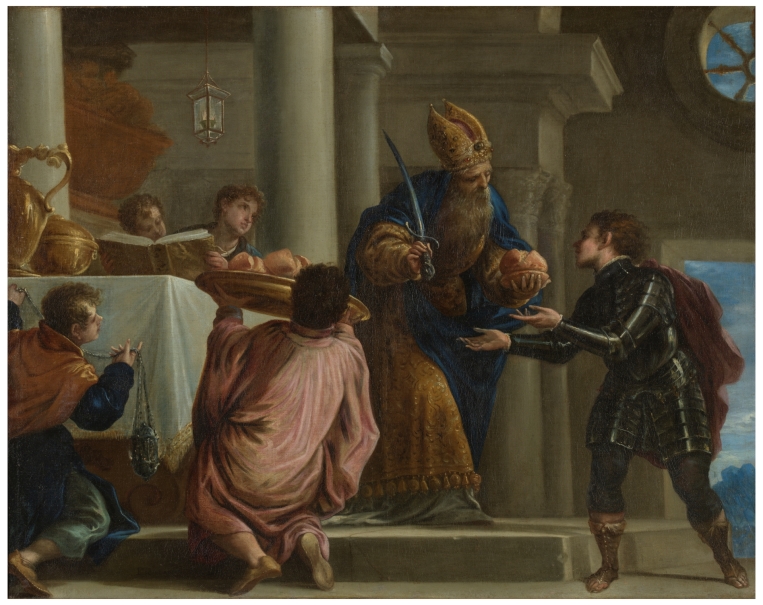

_-_KB_76_F_13%2C_folium_074v_(cropped).jpg/1200px-thumbnail.jpg)
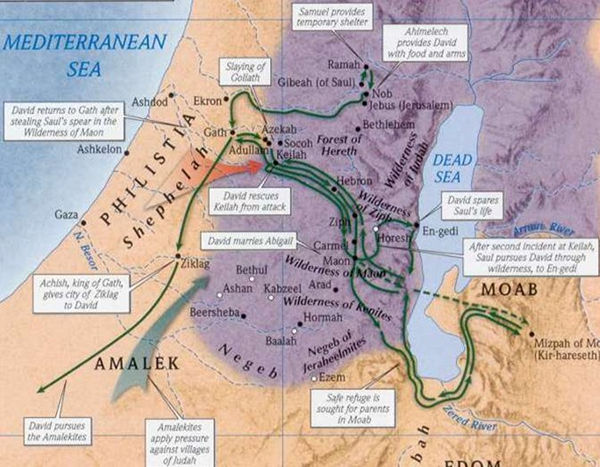
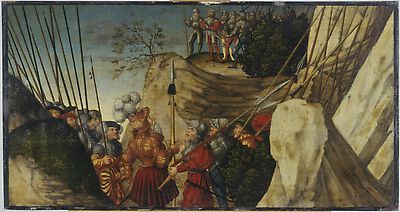
.jpg)












.jpg)

.jpg)

.jpg)
.jpg)
.jpg)











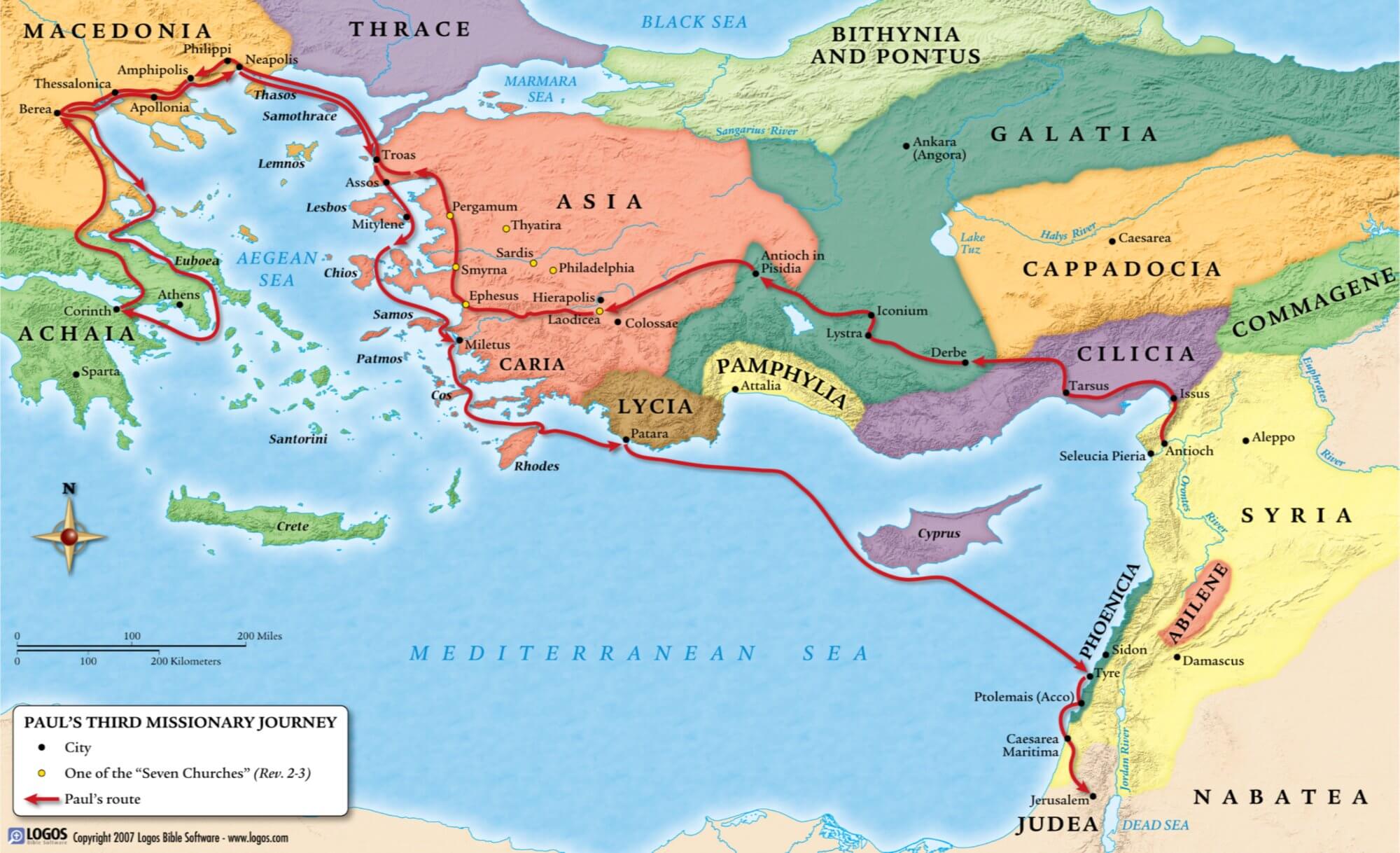
.jpg)
